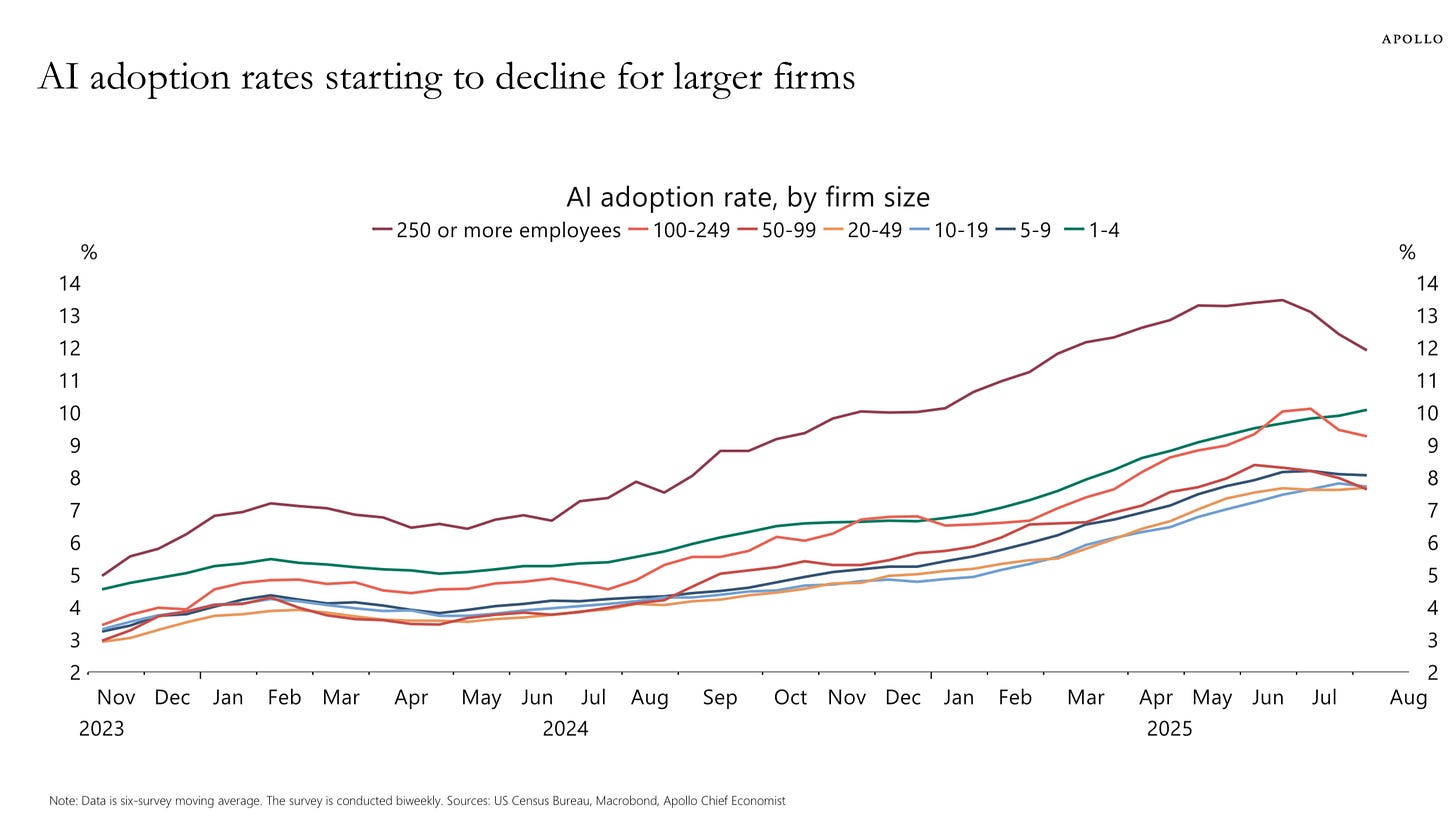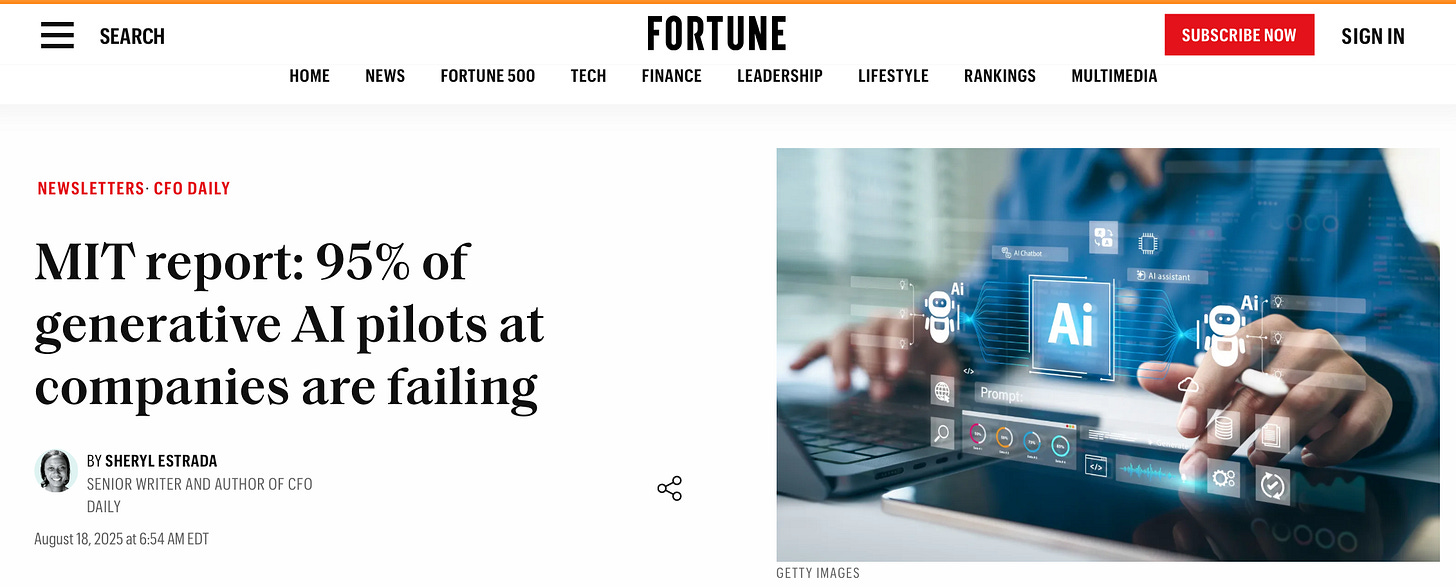OpenAI’s future, foretold?
Two new charts paint two very different scenarios
As OpenAI would have it, interest in Generative AI is going to to continue to go up and up until they make so much revenue their annual revenue exceeds the annual revenues of companies like Ford, BMW, and Bank of America. On a path to make $13 billion last year, they are projecting $200 billion in revenue in 2030, according to a September 5 story at The Information.
Which they would need, because as the same story reports, training costs are immense. On computing costs alone, they are expecting to burn $150 billion between 2025 and 2030. They are burning money, billions a month; per the Information’s headline, “OpenAI Says Its Business Will Burn $115 Billion Through 2029”. And schoolchildren using ChatGPT to do their homework aren’t enough to cover that.
Needless to say, OpenAI can’t make its ambitious revenue numbers — 13x-ing current revenue in five years — unless revenue from paying big business customers keeps going up and up and up and up and up.
The Information was nice enough to capture that all optimism in a chart:

Will revenue really continue to go up and up and up at the pace they project?
Maybe yes, maybe no. Until recently things were looking rosy.
But new Census Bureau data, captured in a graph that Apollo Academy just shared, hints at a very different picture:
Slok elaborates in his newsletter:
Is that decline among big companies over the last two months just a blip? Or could the big companies have finally lost patience?
GenAI certainly sounds amazing – but it hasn’t always worked well enough to justify the costs.
Disappointment would certainly fit with the recent MIT study showing much disappointment at ROI.
The underwhelming GPT-5 results can’t help.
If things go up and up until they don’t, OpenAI is toast.




Is GenAI the final sugar rush before the Great Simplification?
The tech Elite would like us to believe there is this new magical technology that will solve the major problems we face as a civilization including disease, energy shortages, and climatological and ecological breakdown. But behind the scenes many of them are constructing luxury bunkers in remote locations which is why I say pay attention to what they do not what they say!
Instead of city-sized data centers, what it would have taken was a species-level awakening of wisdom, cooperation, and long-term thinking unprecedented in human history to seriously address these problems. It would have meant voluntarily choosing a simpler, smaller world to avoid a forced and catastrophic simplification later.
The fundamental predicament is this: Growth-based civilization is a temporary state. It is a bubble on the long chart of human history. This is the bubble made possible by the one-off “carbon pulse”, and it will pop. The only meaningful choice our species ever had was whether to deflate the bubble slowly with care or to let it burst violently.
Propagandized and manipulated by a rapacious Elite, it appears we have chosen the latter. The great work of the coming decades is no longer to "save" this system, but to create small pockets of resilience, to preserve knowledge, and to practice compassion—to be the stewards of the embers that will be needed in the long, simplified night that is to come.
Sadly, we chose the path of short-term thinking and hyper-individualism. The 1970s was the last time we had the energy surplus and the warning signs to make the choice. We chose more. We chose growth. We chose complexity.
And now, the bill is coming due—the GenAI bubble is a signpost on the road to a future that resembles our collective past more than it does a grand space opera.
I love the efforts by the GenAI boosters to try and explain away the MIT study by saying it has nothing to do with the technology itself; it's just that companies aren't using it right. That would be a perfectly valid argument if, say, "only" 25% or maybe even 50% of GenAI pilots were failing. But if 95% are failing, that means virtually no one can figure out how to use it effectively. And that, in turn, either means that Corporate America is collectively way stupider than anyone realizes (admittedly a non-zero probability) or that the technology itself has serious problems.